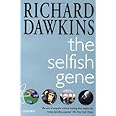
Richard Dawkins is, for popular science media, one of the “world’s smartest scientist” types and therefore big enough to have a mythology:
With reference to the biological world, in the aftermath of the 1976 publication of Richard Dawkins’s The Selfish Gene, philosopher Mary Midgely pointed out the fatuousness of the “meme” hypothesis in painfully direct terms which are doubtless well-known to readers of her articles. Her critique has since been reinforced by others. Philosopher David Stove subjected the Dawkinsian conjecture to the most comprehensive critique. Latterly, John Gray, with habitual trenchancy, has written of “the cod-science of memes” — those supposed “replicating” forces postulated by Dawkins which have no more referent in the real world, Gray fulminates, than the non-existent substance of phlogiston.
In the course of opposing Dawkins’s attempt to extend further the Darwinian imperium into the realm of “universal Darwinism,” philosopher Anthony Flew even disputed whether the term “natural selection” had any genuine meaning at all, questioning the selective power Darwin claimed for it. His British colleague Richard Spilsbury concurred, writing in regard to the question-begging term “complexification” (postulated as a process leading — by intermediate steps wholly unknown — from unicellular species to the eventual evolution of homo sapiens) that “to say that these developments might have come about through the selection of chance variation is not evidence that they did.”5
To establish a conceptual possibility was far from advancing a concrete proof, Spilsbury objected. To assent to that proposition was as futile as it would be to support Charles Darwin’s long disproved theory of pangenesis and the associated idea of “gemmules” in heredity.6
Neil Thomas, “The Dawkinsian Mythology” at Evolution News and Science Today April 9, 2022)
The Selfish Gene undergirded the careers of a thousand evolutionary psychologists, undergirded in turn by popular science media recycling secular beliefs. Facts, in such a case, must necessarily be largely irrelevant unless they are cherrypicked to support Dawkins’s conclusions. That gene was one of those things that just couldn’t not be true.
Neil Thomas is the author of Taking Leave of Darwin (2021).
Note: Thomas’s article is part of a series, Why Words Matter: Sense and Nonsense in Science, which can be read, to date, here.